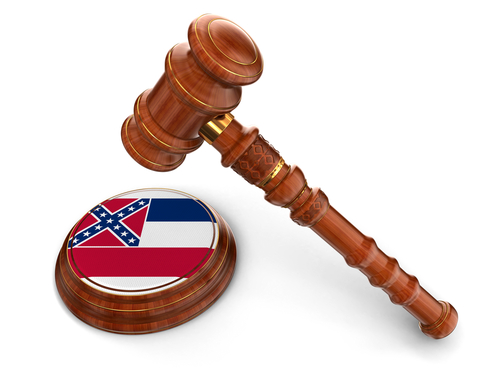The Master Plan: Judicial Division leads effort to increase use of special masters

Photo by Davids
In a normal workday last year, Judge David Thomson of the 1st Judicial District in Santa Fe, New Mexico, faced more than 1,000 cases on his docket.
In addition to the sheer volume, because he presided in the seat of state government, there was a lot of complex civil litigation in his caseload. He didn’t work with magistrate judges or law clerks and would have handled most of the matters on his own—if it weren’t for special masters.
These court appointees managed various aspects of his cases, leading to quicker, more efficient resolutions. Sometimes they helped settle discovery disputes so he didn’t need to get involved. They also compiled reports for him to review that led to more comprehensive records for everyone.
Thomson, now a New Mexico Supreme Court justice, says that although he recognized the advantages of special masters, the parties in his cases were often hesitant to trust a process that was largely unknown to them.
“As a trial court judge, I’d be very open, tell them it’s a complex case, I’ve seen you once a month and we’ve had hearings for three hours,” he says. “I am going to get to this, but I also have 999 other litigants.”
Thomson and other members of the ABA Judicial Division began discussing how they could promote the use of special masters and the benefits they provide to busy trial judges and courts with limited resources.
The Lawyers Conference of the Judicial Division formed the Committee on Special Masters in 2016 and organized a diverse working group that included not only members of its division but also the Standing Committee on the American Judicial System, Section of Litigation, Business Law Section, Section of Dispute Resolution, Section of Intellectual Property Law, Tort Trial & Insurance Practice Section, and Section of Antitrust Law.
They created the ABA Guidelines for the Appointment and Use of Special Masters in Federal and State Civil Litigation, which were adopted by the House of Delegates as Resolution 100 at the ABA Midyear Meeting in January.
They also recommended in the resolution that courts responsible for cases under the Bankruptcy Code be permitted to use special masters in the same way they are used in other federal cases.
Since then, the committee has been helping courts adapt the guidelines for their needs and establish criteria to use when building their rosters of special masters and evaluating them. The committee is also developing model rules and a model code of ethics for special masters.
MastermindS
The work usually begins by outlining what a special master can do, says Merril Hirsh, co-chair of the Special Masters Committee and owner of HirshADR and the Law Office of Merril Hirsh in Washington, D.C.
“Special masters are the equivalent of a Swiss Army knife for judges,” he says. “Basically, there is an inherent authority to use special masters for almost any purpose that furthers judicial administration.”
According to the report that accompanies Resolution 100, every state except Illinois has rules or statutes that permit courts to appoint special masters or similar court adjuncts to assist with case management. Rule 53 of the Federal Rules of Civil Procedure also allows federal courts to appoint and delegate tasks to special masters.
In addition to resolving disputes between parties and assisting with discovery oversight, special masters can perform pretrial case management; coordinate cases in multiple jurisdictions or between federal and state courts; provide technical expertise; review accounting; and conduct trials or minitrials.
They can also be appointed to serve in nonjudicial roles, such as administering the September 11th Victim Compensation Fund.
“You have this array of different functions that historically haven’t been used,” Hirsh says. “You have courts making very good and effective use of other forms of alternative dispute resolution like mediation, but they haven’t used this function effectively.”
BROADENING THE POOL
Hirsh contends there has been a “historic distaste” for special masters, stemming partly from judges and attorneys having little experience with them, but also from courts bringing them in only after acrimony and delays get out of hand. While a special master can help in those situations, he says, they are not as effective.
He adds that since few courts have an official process for selecting special masters, the perception exists that they are friends of the judge or a specific party and may be unfair in managing the case.
A key element of the Special Masters Committee’s plan is to help courts develop a larger pool of qualified, diverse special masters.
The pool could include detail-oriented attorneys and retired judges who would serve well as case managers. It could also be categorized by specialty; for example, attorneys who have experience in issues with subcontractors could assist in construction cases.
As Thomson and other committee members help develop the rules, they stress the importance of an open and transparent process that provides everyone with equal opportunities.
“One of the advantages, quite frankly, of making this available to attorneys is that it may attract people who do not normally know what it’s like to be a neutral, and add some gender and ethnic diversity to the bench,” he says.
Hirsh agrees that they can help instill diversity among special masters from the outset. Since more traditional forms of alternative dispute resolution have experienced grandfathering, he says, they include mostly white men.
“Very few people do only special master work, so it’s kind of like we’re creating a profession from scratch,” he says.
Mastering the craft
Henry duPont Ridgely, a former justice of the Delaware Supreme Court who is now senior counsel with DLA Piper in Wilmington, Delaware, offers his state as a model environment for special masters because of the willingness of courts to use them and the experience of lawyers and retired judges who serve in that role.
Ridgely, another member of the Special Masters Committee, recalls that he saw, as a trial judge, how special masters could assist the courts—and help experienced attorneys on both sides—after Delaware had an influx of complex insurance coverage cases in the 1980s.
“So the use of special masters has been a long tradition in Delaware, and it continues to this day,” he says.
Ridgely has also served as a special master since leaving the bench. He was contacted by one of the parties and asked whether he would assist with the case. Once he agreed, he was vetted by all counsels and appointed by the trial judge.
“I enjoy the work because the cases are challenging and interesting and provide the opportunity for me to again assist parties in resolving disputes and preventing disputes from escalating,” he says.
As the Special Masters Committee shares the ABA guidelines with courts and bars around the country, its members hope to inspire a greater and more systemic use of special masters.
“We shouldn’t say this is rare, we shouldn’t say this is odd; this should be a tool,” Hirsh says. “We don’t have to use it in every case, but it shouldn’t be any more surprising that a judge would consider using a special master than a judge would consider referring a case to a magistrate judge for a settlement conference or suggesting the parties use mediation.
“It should be on the table as an idea to be used creatively.”
Write a letter to the editor, share a story tip or update, or report an error.


